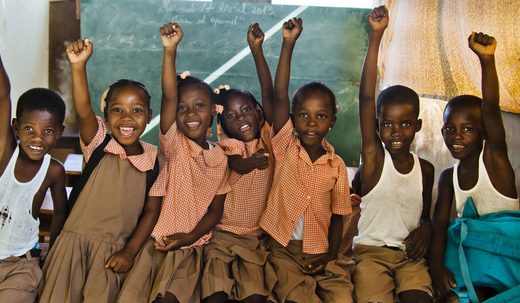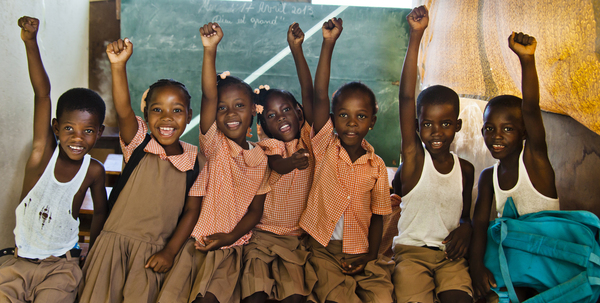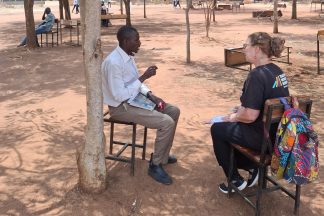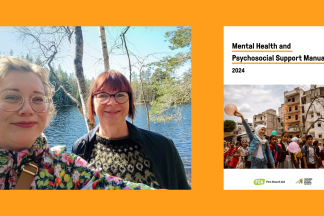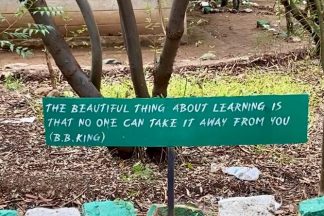“We (Finn Church Aid, FCA) work where there is a need for our help. If there are too many organisations in the same place, we go somewhere else. We try to avoid competition with other organisations”. That was one of the first things I heard at the Teachers without Borders’ training last January in Helsinki. In that moment I realised I was in the right place.
From my short professional and academic experience in humanitarian aid and international cooperation, I would say that, quite often, the work of NGOs and international organisation is not as beautiful as they try to sell it. I thought that concepts such as competition, opacity, battles of egos, lack of collaboration or strong hierarchy, belonged only to the private sector. In Profit-driven organisations, concern about profit at the company and personal level, ethics may be left to a second position. I thought NGOs, as non-profit organisations with the altruistic objective of helping people in need, were different. But in many cases they both share more similarities than differences.
Prior my current work as a volunteer for Teachers without Borders in Haiti, I did an internship in an international organisation on child protection. Collaboration between NGOs, from the same field, was always a top issue during meetings, but it never came true; mainly because, those very same organisations were fighting against each other to get funding from the same donors. Another issue I consider relevant regards to publications. They published a fairly large number of country monitoring reports on child protection in Moldova, Japan, Vietnam and elsewhere. They were high quality reports written by excellent professionals. On the other hand, most of them were written only in English. I wonder how helpful is a report in English in countries with a different official language. Who does benefit from it?
I mentioned all of the above to claim that FCA is different. At least from what I have experienced in my short time with this organisation. While in my previous international organisation it was extremely difficult to approach to my direct supervisor, not to mention the executive director, in FCA the relationships are horizontal, promoting a healthy dialogue where we all are at the same level. As a small anecdote, in the previous organisation, I was surprised that no one washed their coffee cups, while in FCA´s Headquarters everybody does it. If the organisation has a strong hierarchy, someone at the bottom will do it for you. A high-level professional won’t get their hands wet to do such a low-skill work. I believe small details say a lot about the values of an organisation as well as the individuals.
While in my previous organisation the vast majority of the staff had been working there no longer than two years; in FCA, most of the people I have talked to, have been for much longer. If you are happy with your work and you are happy with what your organisation does, it is easier to keep working at the same place.
Teachers without Borders Haiti
My project in Haiti focuses on primary school teacher training in three schools in the area of Léogâne, epicentre of the earthquake in Haiti in 2010. The schools collapsed during the earthquake and they were re-built by FCA. The training is divided in three modules.
The first module is about reutilising materials cost-free and easy to find, such a bottle tops or empty (and clean) food containers, to promote learning through experience. In many education systems, including in the so-called developed countries, the learning process excludes experience. Learning by hearth without understanding what is it what learners learn, or how can they use this learning out of the school. This kind of education is described by Paulo Freire as banking education in which learners, as a metaphor, are empty containers that are filled up by the knowledge of educators. Learners learn by heart, do a test about what they have memorised and if they passed it, they go to the next level, repeating the same process every single time. Together with Freire, this training module also follows ideas of John Dewey in regards of the importance of learning through experience.
The second module is about inclusive education. Quite often inclusive education concerns to learners with disabilities. But I believe this approach to inclusive education promote exclusion, because there are many other variables to take into account such as economic background place of residence, religious background, sexual orientation, gender, ethnicity, mother tongue and so forth. Inclusive education is not only about having access to specific resources to include previously excluded children. More important than resources is the teacher’s attitude towards diversity and inclusion. To realise that what unites people is much stronger than what divides them.
The third module is about learning trough playing. The concept of playing is a key in Finnish education, especially in kindergarten. Learning does not have to be boring. It is pretty much the opposite. If a child is having fun while learning he or she will be more eager to learn. In most of the countries throughout the world learning is passive, without interaction between learners, without encouraging them to participate, without letting them have fun. Moreover, sometimes happens, when learners are having fun they are punished. All subjects can use games to motivate children to learn. It is also a tool to promote healthy values such as respect to diversity, collaboration, generosity and so forth; in a few words, peace education. Peace education is crucial in context where conflict is taking the leading role.
Photo: Anna Kauppila

